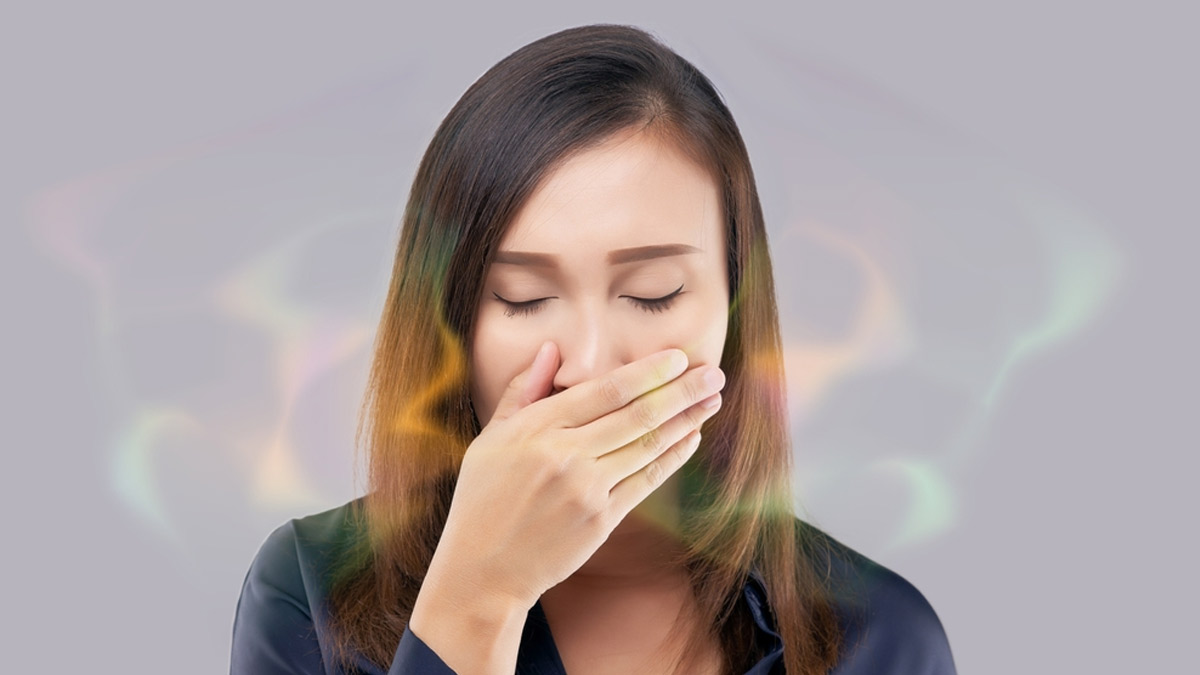
Having early-stage diabetes or pre-diabetes and full blown diabetes can lead to lots complications – one of which is bad breath. And although diabetics can have halitosis or foul mouth odor from poor hygiene habits, their type of mouth odor is unique to the disease.
Bad breath
Let’s take a look at some causes of bad breath:
In general, bad breath is caused when bacteria in the mouth starts breaking down glucose or food particles. They release a foul odor, that if not addressed soon after eating, will linger.
Causes of bad breath not related to oral hygiene include – medication, digestive problems, dry mouth, certain illness, specific type foods and a lack of access to professional care.
These are the main culprit for having bad breath.
The stigma of having foul smelling breath can cause many people to become isolated – not only are others shunning you but you are not motivated to socialize because of the condition.
Diabetes mouth odor
For diabetics, the issue of bad breath is related to the fact that they are not able to process glucose (sugar) normally. They are either not producing enough insulin or not efficiently using what’s produced. Because their bodies are not using insulin correctly there is a build-up of blood sugars circulating throughout their entire system.
The result of this poor circulation is that blood flow is restricted to the gums and causes a build up of unwanted bacteria in the mouth. This will lead to gingivitis which is a mild form of periodontal or gum disease. If left untreated gingivitis will result in serious periodontal issues.
In the advanced stages of periodontal disease the bones that support the teeth and the surrounding gum area can become infected causing further incidences of diabetic bad breath. Also, because of poor blood circulation, diabetics are slow to heal from any problems cause by periodontal disease.
In many cases diabetics will lose their teeth if gum disease is not treated properly in the early stages. Periodontal disease is also linked to heart disease and strokes.
The unfortunate reality is that many diabetics will develop periodontal disease.
Dentists are able to predict the likelihood of someone being diabetic just from the condition of their gums and teeth.
Another problem for diabetics that’s related to poor circulation is the build-up of ketones in the blood. This build-up is the result of the body burning fat instead of glucose for energy. The body will try to expel this build-up through your urine and also through your breathing. When expelled through your breathing it causes you to have bad breath – a fruity mouth odor usually described as pear smelling.
In fact, medical specialist can determine if someone is diabetic just from the smell of their breath.
Recognize the signs of gum disease
Signs of gum disease include:
- Bad breath . . . as discussed above
- Bleeding gums
- Redness or inflammation of your gums
- Loose teeth
- Persistent tooth ache
- Sensitive teeth
Treatment for persistent diabetic bad breath
So how do you treat diabetic bad breath and gum disease? Here are seven things you can do starting today:
- Make an appointment with a dentist to get a dental check-up. They can tell you the condition of your teeth and gums and if you have any signs of periodontal disease. In most case they can resolve the problem by cleaning your gums and teeth. Medication may also be prescribe to treat the problem if it’s present or recommendations will be made for preventative treatments.
- In addition to getting a dental check-up, be sure to visit with your doctor to get a health status review. If there are any underlying health problems then start getting them resolved.
- Make a definite plan to control you blood sugars. Your plan should include eating a healthy diet and making time to exercise regularly.
- Brush you teeth and gums a least twice daily. Floss regularly – at least once per day and clean your tongue and the roof of your mouth often since they can be a breading ground for bacteria.
- Drink water regularly to stimulate production of saliva.
- If you smoke try to quit or cut down.
- If you lose your teeth and must wear dentures be sure they fit securely.
For many of us dental care can be an major expense. There are government assisted programs that can help. Visit some of them here.
